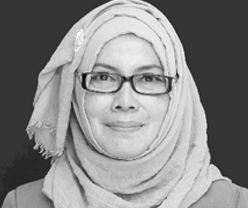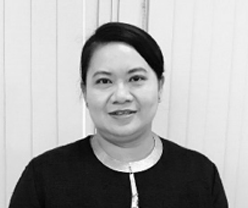14 October 2021 - Session 3
Summary
The third event in the City-to-City Knowledge Exchange programme featured the following cities and projects:
- Bandung, Indonesia: Development of an Integrated Public Transport System in Bandung
- Bangkok, Thailand: Integrated Data Hub for Bangkok Metropolitan Administration
- Bangkok, Thailand: Flood Management Decision Support System
- Bangkok, Thailand: Transit-Oriented Development Plan for Khlong Bang Luang Area
The development of an integrated public transport system in Bandung shared common challenges and opportunities with the Transit-oriented Development Plan for Khlong Bang Luang Area, particularly in terms of how successful transport development integrates with the wider community and area. The inclusion of three projects from Bangkok promoted greater stakeholder engagement interaction between the three main stakeholders, exemplifying the importance of collaboration within cities.
Key Takeaways:
- There is opportunity to link Bangkok’s multiple interventions more explicitly. There are clear synergies to leverage in data and urban planning with potential to overlap the use cases for data across interventions and have them contribute more than the sum of their parts.
- Maintaining focus on how these interventions will drive impact and outcomes, and ultimately contribute to prosperity, is important, particularly in this later stage of their development.
- With the more developed interventions there is an option for scalability, both across the city spatially, and within government with respect to its reach. Interventions do not have to be constrained by their initial mandate.
- Cross-city learning, both within the programme and beyond it, can provide useful input. But this needs to be framed within the local legislature and context.
- Prioritisation and sequencing of work is crucial. If the intervention tries to do everything, it has a higher chance of achieving little or nothing
Cities Contributors

Dr Riela Fiqrinah, Head of Section III, Infrastructure and Regional Development Planning, BAPPELITBANG, Indonesia
Riela Fiqrina is Head of Section III Infrastructure and Regional Development Planning at the Agency of Developmental Planning, Research and Development Bandung City Badan Perencanaan Pembangunan, Penelitian dan Pengembangan Kota Bandung (BAPPELITBANG Kota Bandung). She earned her Doctoral degree from the Faculty of Social Politics of the Padjajaran University Indonesia and her Advanced master's degree was in Environmental Science from the same university. Prior to her PhD, her undergraduate study was in Landscape Architecture.

Dr Nutchuda Mongkolchart, Computer Technical Officer, Bangkok Metropolitan Administration, Thailand
Nutchuda Mongkolchart is Computer Technical Officer at Geographic Information Division, Strategy and Evaluation Department, Bangkok Metropolitan Administration (BMA). She has worked for the BMA since 1994 as a Computer System Officer. She is involved in various major projects related to digital infrastructure for the BMA such as Database management for BMA. She is also a part of Computer and Information Technology. Committee whose roles are to identify and evaluate efficient and effective application of computer and information technology projects for the BMA. She specialises in programming, database managing, and data processing programmes. She is also a lecturer in Quantum GIS and Arc View.

Mr Arsa Sukkhang, Director of Drainage Information System Division, Drainage and Sewerage Department, Bangkok Metropolitan Administration, Thailand
Arsa Sukkhang is Director of Drainage Information System Division at Drainage and Sewerage Department, Bangkok Metropolitan Administration. He worked for the BMA since 1996 as an Electrical Engineer at Water Quality Management Office, Drainage and Sewerage Department. His role includes overseeing Bangkok Water Management Centre, which collects, analyses, monitors, controls, and manages water quality and flood information for the Bangkok Metropolitan Area, as well as providing geographic information system, management information system, and information technology system.

Ms. Piyanud Siri, Director, Urban Design and Development Division, Bangkok Metropolitan Administration, Thailand
Piyanud Siri is Director of Urban Design and Development Division at the City Planning and Urban Development Department in Bangkok Metropolitan Administration (BMA). She is responsible for creating an implementation plan for key areas in Bangkok by combining urban planning tools, urban design concepts and urban development program such as land readjustment and project management. She is experienced in formulating all Bangkok Comprehensive Plans on behalf of the local government and has been working for the BMA since 1998. She received a Masters degree in Urban and Regional Planning (MURP) from Chulalongkorn University, Bangkok, Thailand, in 1994.
Subject Matter Experts

Shahrukh Wani, Economist, International Growth Centre, UK
Shahrukh Wani is an economist at the International Growth Centre’s Cities that Work initiative at the Blavatnik School of Government, University of Oxford. In this role, he supports evidence-based policy reforms in Africa and South Asia with a focus on public finance and urban governance. His work has included collaborations with policymakers in Afghanistan, Uganda, Pakistan, and Zambia on areas such as property taxation, fiscal and administrative decentralisation, and urban infrastructure provision. Before joining the IGC, Shahrukh conducted economic analyses for ActionAid on Pakistan’s tax system, supported a statistical poverty measurement tool at the Grameen Foundation and the Innovations for Poverty Action (IPA), and helped set up an accelerator program for social enterprises in Islamabad. Additionally, Shahrukh frequently contributes opinion pieces on economic policy to various newspapers.

Mr Oliver Harman, Cities Economist, International Growth Centre, UK
Oliver Harman is a Cities Economist for Cities that Work, an International Growth Centre initiative based at the Blavatnik School of Government, University of Oxford. The initiative works to develop a network of economists, urban planning practitioners and policymakers to translate economic research into clear urban policy guidance. In this role and previous Oliver has engaged with local government Ministries and Mayoral teams across Africa, Asia, Latin America & Caribbean and Europe. Specific work includes local government reform in Guyana, urban resilience in Ghana, post-disaster policy in Mozambique and municipal finance in Malawi, Senegal, Somaliland and Uganda as well as inclusive growth in his hometown, Oxford. He has undertaken capacity building on municipal finance in both Guyana and U.K. Oliver was the focal point for IGC’s collaboration with the Foreign and Commonwealth Office’s during the strategic development phase of the ‘Global Future Cities’ programme as well as the European Commission’s ‘Enhancing the financial position of cities’ programme

Mr Nathan Pierce, Head of Smart London, Greater London Authority, UK
Nathan Pierce is the Head of the Smart London Team based in the Greater London Authority in the UK. He is also the Programme Director for Sharing Cities, a pan-European programme that tests out innovative smart city solutions across a number of major European cities, replicating and scaling what works through new business and investment models. Nathan has 15 years’ experience across a range of public sector bodies having led on major service design and commissioning projects within London and at a European level. Nathan is determined to improve the lives of regular people by finding innovative ways to make government more sustainable, efficient and citizen focused.

Mr Roland Chanin-Morris, Urban Planner, UK,
Roland Chanin-Morris is a Steering Committee Member of the Academy of Urbanism Young Urbanists and a Member of the International Society of City and Regional Planners (ISOCARP). He has worked at a range of scales from city- and regional-scale spatial plans to district- and site-level masterplans. His sector experience includes transit-oriented developments, tourism destinations, sports and cultural venues, economic and industrial zones and urban resilience strategies. Roland has worked in diverse international contexts in more than 15 countries in Southeast Asia, Europe, the Middle East and Africa. He has served as technical lead on a series of major integrated development planning projects in Jakarta and Semarang relating to urban regeneration and transit-oriented development and engaging closely with issues around socioeconomic inclusion.

Mr Ryan Christopher Sequeira, Senior Urban Mobility Expert, UN-Habitat’s Urban Lab, Kenya
Ryan Christopher Sequeira is overseeing the 18 mobility projects of the Global Future Cities Programme. He advises projects under the UN Cities Investment Facility, an upstream project development endeavour to prepare bankable, SDG-compliant projects for pitching at the Investor Fair of the 11th World Urban Forum and serves as an expert reviewer for the transportation projects of the ASEAN Sustainable Urbanisation Strategy. Before he joined UN-Habitat, Ryan worked on 59 rail and road transit nodes, 2.3 million square meters of allied Transit-Oriented Development, and 250 kilometres] of Complete Streets for the Government of the National Capital Territory of Delhi, Infrastructure Development Finance Corporation, and National Institute of Urban Affairs. Most recently, he worked on the infrastructure rejuvenation of 13 wastewater districts for the New York State Water Resources Institute as an Infrastructure Project Management & Finance Fellow at Cornell Institute of Public Affairs. His latest publication, on the Politics of Infrastructural Aesthetics of the Delhi BRT, was published in the International Development Planning Review and he is currently co-authoring a SIDA funded normative study on Integrated Capital Investment Planning.
Presentations
- Bandung, Indonesia: Development of an Integrated Public Transport System in Bandung
- Bangkok, Thailand: Integrated Data Hub for Bangkok Metropolitan Administration
- Bangkok, Thailand: Flood Management Decision Support System
- Bangkok, Thailand: Transit-Oriented Development Plan for Khlong Bang Luang Area
Bandung Integrated Public Transport video from RIBA on Vimeo.
Links to further information